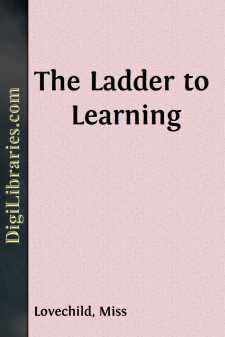Categories
- Antiques & Collectibles 13
- Architecture 36
- Art 48
- Bibles 22
- Biography & Autobiography 813
- Body, Mind & Spirit 142
- Business & Economics 28
- Children's Books 17
- Children's Fiction 14
- Computers 4
- Cooking 94
- Crafts & Hobbies 4
- Drama 346
- Education 46
- Family & Relationships 57
- Fiction 11829
- Games 19
- Gardening 17
- Health & Fitness 34
- History 1377
- House & Home 1
- Humor 147
- Juvenile Fiction 1873
- Juvenile Nonfiction 202
- Language Arts & Disciplines 88
- Law 16
- Literary Collections 686
- Literary Criticism 179
- Mathematics 13
- Medical 41
- Music 40
- Nature 179
- Non-Classifiable 1768
- Performing Arts 7
- Periodicals 1453
- Philosophy 64
- Photography 2
- Poetry 896
- Political Science 203
- Psychology 42
- Reference 154
- Religion 513
- Science 126
- Self-Help 84
- Social Science 81
- Sports & Recreation 34
- Study Aids 3
- Technology & Engineering 59
- Transportation 23
- Travel 463
- True Crime 29
Sort by:
by:
Isaac Newton
DEFINITIONS DEFIN. I. By the Rays of Light I understand its least Parts, and those as well Successive in the same Lines, as Contemporary in several Lines. For it is manifest that Light consists of Parts, both Successive and Contemporary; because in the same place you may stop that which comes one moment, and let pass that which comes presently after; and in the same time you may stop it in any one...
more...
by:
Randall Davies
INTRODUCTORY So far as it concerns pictures painted upon panel or canvas in tempera or oils, the history of painting begins with Cimabue, who worked in Florence during the latter half of the thirteenth century. That the art was practised in much earlier times may readily be admitted, and the life-like portraits in the vestibule at the National Gallery taken from Greek tombs of the second or third...
more...
FULLNESS OF PEACE, POWER, AND PLENTY. PRELUDE. The optimist is right. The pessimist is right. The one differs from the other as the light from the dark. Yet both are right. Each is right from his own particular point of view, and this point of view is the determining factor in the life of each. It determines as to whether it is a life of power or of impotence, of peace or of pain, of success or of...
more...
by:
William Evans
The world could afford to spare many a magnificent library better than it could dispense with this little Psalm of six verses. If the verses of this Psalm had tongues and could repeat the tale of their ministry down throughout the generations of the faithful, what marvels of experience they would reveal! Their biographies would be gathered from the four winds of heaven and from the uttermost parts of...
more...
by:
Henry Bradley
INTRODUCTION. The work now for the first time reprinted from Caxton’s original edition has been preserved in three copies. One of these is in the Library of Ripon Cathedral, another in the Spencer Library, now at Manchester, and the third at Bamborough Castle. A small fragment, consisting of pp. 17-18 and 27-28, is in the Bodleian Library. The text of the present edition is taken from the Ripon copy....
more...
by:
Miss Lovechild
THE LADDER TO LEARNING BY MISS LOVECHILD. MARKS' EDITION. 1852 AlbanyPublished by R. H. Pease516 Broadway a A stands for Ape, for Arthur, and Air. b B stands for Bullock, for Bird, and for Bear. c C stands for Cat, for Charles, and for cry. d D stands for Dog, for Daniel, and Dry. e E stands for Eagle, for Edward, and Eel. f F stands for Fish, for Francis, and Feel. g G stands for Goat, for Great,...
more...
PREFACE. “What the child imitates,” says Froebel, “he begins to understand. Let him represent the flying of birds and he enters partially into the life of birds. Let him imitate the rapid motion of fishes in the water and his sympathy with fishes is quickened. Let him reproduce the activities of farmer, miller and baker, and his eyes open to the meaning of their work. In one word let him reflect...
more...
I. THE PHLOGISTON THEORY IN CHEMISTRY The development of the science of chemistry from the "science" of alchemy is a striking example of the complete revolution in the attitude of observers in the field of science. As has been pointed out in a preceding chapter, the alchemist, having a preconceived idea of how things should be, made all his experiments to prove his preconceived theory; while...
more...
The Meaning, Need, and Scope of Sex-education § 1. Sex-education and Its Relation to Sex-hygiene and Social Hygiene Definition of sex-education.Sex-education in its largest sense includes all scientific, ethical, social, and religious instruction and influence which directly and indirectly may help young people prepare to solve for themselves the problems of sex that inevitably come in some form into...
more...
Paris smiled, for an hour or two, in the year 1801, when, amidst Napoleon's mighty projects for remodelling the religion and government of his empire, the ironical satirist, Sylvain Maréchal, thrust in his "Plan for a Law prohibiting the Alphabet to Women."[1] Daring, keen, sarcastic, learned, the little tract retains to-day so much of its pungency, that we can hardly wonder at the honest...
more...











